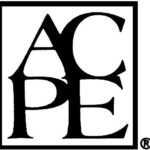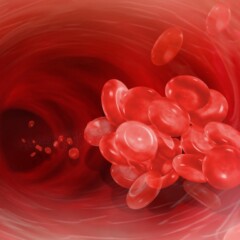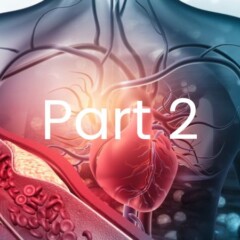Last updated on
Current Treatments for LDL-C Lowering and Why Patient Access Is Important
The Cholesterol Wars: Navigating a Shifting Battlefield –
Current Treatments for LDL-C Lowering and Why Patient Access is Important
This course has expired for CME credit, however you can still view and access the event recording.
Table of Contents
ACTIVITY DESCRIPTION / STATEMENT OF NEED
Statin therapy is the recommended treatment for lowering low-density lipoprotein cholesterol (LDL-C) and reducing atherosclerotic cardiovascular disease (ASCVD) risk. However, evidence-based and guideline-recommended therapies, including ezetimibe and PCSK9 inhibitors, continue to be underutilized, even among the highest risk patients. Consequently, an unmitigated burden of cardiovascular risk persists. More education is urgently needed to address this problem. To that end, NATF invites you to join us for a virtual series of webinars that discuss some of these key issues in cholesterol management.
AGENDA
INTENDED AUDIENCE
This program is designed for physicians, pharmacists, nurse practitioners, physician assistants, nurses, and allied healthcare professionals in the fields of internal medicine, primary care, family medicine, hospital medicine, cardiology, and endocrinology.
COST
Participation in this activity is free.
This activity is supported by an educational grant from Amgen
LEARNING OBJECTIVES
Upon completion of the educational activity, participants should be able to:
- Review current recommendations and available treatment options for optimal LDL-C lowering and apply that information to a patient case.
- Discuss clinician and patient barriers to optimizing LDL-C pharmacologic therapies.
- Describe the impact of limited patient access to LDL-C lowering therapies on cardiovascular outcomes.
- Compare available treatment options for LDL-C lowering.
- Describe methods to optimize patient access to LDL-lowering therapies.
- Apply evidence-based LDL-lowering treatment to a patient case.
FACULTY AND DISCLOSURES

Jorge Plutzky, MD
Director, Preventive Cardiology
Brigham and Women’s Hospital
Boston, MA
Disclosures: Consultant: Alnylam, Altimmune, Amgen, Esperion (Clinical trial steering committee), Merck, MJ Health Lifesciences, Novo Nordisk (Clinical trial steering committee, consultant)
Grants: NIH/NIDDK, Boehringer Ingelheim, Novartis

Heather Johnson, MD, MS
Lynn Women’s Health Institute
Baptist Health South Florida
Boca Raton, FL
Disclosures: Research grant: NIH/NHLBI
Board of Directors: American Society of Preventive Cardiology

Seth Martin, MD, MHS
Associate Professor of Medicine
Johns Hopkins School of Medicine
Baltimore, MD
Disclosures: Consulting: Amgen, AstraZeneca, Sanofi, Regeneron, Novo Nordisk, iHealth, Esperion, Akcea, Quest, 89bio
Research Support: Amgen, iHealth
ACCREDITATION
This activity has been planned and implemented in accordance with the accreditation requirements and policies of the Accreditation Council for Continuing Medical Education (ACCME) through the joint providership of ScientiaCME and the North American Thrombosis Forum. ScientiaCME is accredited by the ACCME to provide continuing medical education for physicians.
Physicians: ScientiaCME designates this online enduring activity for a maximum of 1.00 AMA PRA Category 1 CreditTM. Physicians should claim only credit commensurate with the extent of their participation in the activity.
Nurse Practitioners (NPs): The American Academy of Nurse Practitioners accepts AMA PRA Category 1 Credit(s)™ from organizations accredited by the ACCME. ScientiaCME will provide NPs who successfully complete each activity with a certificate of participation indicating that the activity was designated for AMA PRA Category 1 CreditTM.
Physician Assistants: The American Academy of Physician Assistants accepts AMA PRA Category 1 CreditTM from organizations accredited by the ACCME.
Nurses: may claim credit for activities approved for AMA PRA Category 1 CreditTM in most states for up to 50% of the nursing requirement for recertification. Nursing board continuing education requirements for relicensure vary state-by-state.
Medical Practice Executives: The American College of Medical Practice Executives accepts AMA PRA Category 1 CreditTM from organizations accredited by ACCME.
Pharmacists:
ScientiaCME is accredited by the Accreditation Council for Pharmacy Education (ACPE) as a provider of continuing pharmacy education.

This activity is approved for 1.00 hour (0.10 CEUs) of continuing pharmacy education credit. Proof of participation will be posted within 4 to 6 weeks to the NABP CPE profiles of participants who have successfully completed the post-assessment with a passing score of 70%.
ACPE UANs and activity types: 0574-9999-22-048-H01-P
This activity is an Application (A)-type activity.
Released: November 22, 2022
Expires: November 22, 2023



